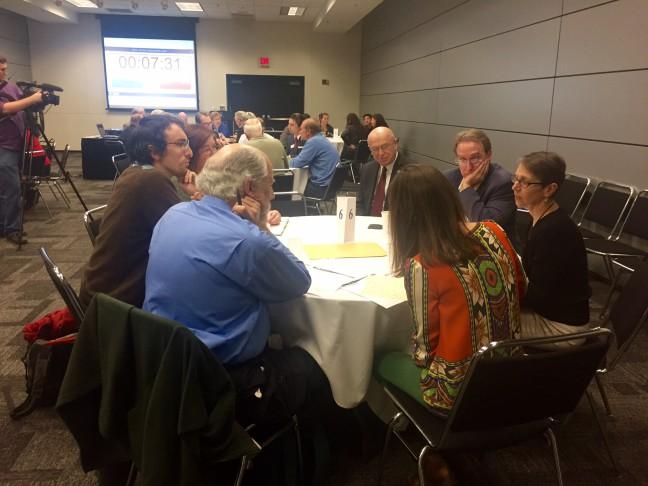The University of Wisconsin System resumed its free speech survey Nov. 14, after a controversial rollout last spring.
Back and forth discussions over whether to participate in the survey ultimately led to the resignation of UW-Whitewater interim chancellor Jim Henderson and a postponement of the survey until fall 2022.
In April 2022, former UW System president Michael Falbo announced the System would not participate in the survey, but eventually agreed to move forward with it under pressure from the survey’s writers. The survey research team later canceled its launch to refine the questions.
Behind the messy politics of its rollout, the real source of controversy is the survey’s content.
The updated survey contains questions surrounding topics like free speech, offensive language and controversial viewpoints for undergraduates on campus. It asks students about their understanding of the First Amendment and their comfort level with publicly expressing their views on various topics.
Notably, the survey is being implemented with over $100,000 from UW–Stout’s Menard Center for the Study of Institutions and Innovation. The center is named after the Menard family, which donates to both UW and conservative organizations.
Despite the researchers’ claims that their goal is to open a discussion about free speech, many feel the survey has an ulterior motive. Some fear the survey uses leading questions and that results may be manipulated to perpetuate a particular narrative, according to The Capital Times.
For one, the survey asks about students’ experiences with expressing views on controversial topics on campus. But, the survey does not require students to demonstrate an understanding of the difference between controversial and hateful views.
The survey allows students to express their discomfort expressing their opinions on topics like “immigration,” “sexual assault” and “transgender issues.” Asking these kinds of questions opens the door for bigoted views which invalidate others’ lived experiences to be protected under free speech.
Posing topics like “transgender issues,” suggests there are opposing — and equally valid — viewpoints about the existence and guaranteed rights of transgender people. Perspectives which seek to invalidate the experiences of marginalized groups, however, should not be regarded with legitimacy.
This fundamental flaw poses serious concerns for how the results of the survey will be used to protect harmful views on campus — especially considering funding largely comes from the Menard Center.
These efforts are part of a larger conservative movement to reframe harmful views on college campuses as free speech. As universities became more concerned about protecting marginalized students and terms like “political correctness” grew in popularity in the 1980’s, Republicans made free speech a token issue.
But, conservatives are selective about what speech they believe should be protected. Recently, they have begun advocating for repression on college campuses, according to The Washington Post. While they encourage freedom when it comes to promoting their own beliefs, conservatives prefer to censor information about things like systemic racism and gender identity in classrooms.
As the survey is distributed and results are tabulated, it’s important to remember it was constructed with particular motives in mind. Given the inherent bias of the survey topics and the funding which makes it possible, the political purpose of the survey cannot be separated from the findings it produces.
Free speech has become a convenient cover for conservatives to enact harmful policies. If the UW System hopes to prevent the weaponization of the survey results, they must opt out of participation in the survey. If they choose to allow the implementation of the survey despite controversy, they will be complicit in allowing undue political influence in university policies.
Celia Hiorns (chiorns@wisc.edu) is a sophomore studying journalism and political science.


